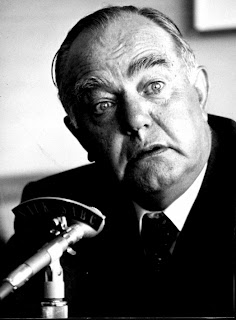The poem When We Two Parted, written by Lord Byron, interprets the sad account of a broken-hearted narrator, recounting his feelings towards a former companion. Feelings of loss, loneliness, regret, and ill will are evidently shown throughout the piece.
The poem is divided in to four stanzas, containing their own respective rhyme pattern throughout each of the eight verses. In terms of diction, the use of rhyme pattern gives the work a great deal of rhythm, almost adding a sense of musicality to the poem. The most powerful device throughout Lord Byron’s piece is most certainly the choice of words. The strength of the words used in the poem truly conveys the narrator’s feelings to the reader. Communicating these feelings to the reader is crucial as this poem is largely based on emotion. I think Lord Byron successfully does so throughout the piece. In the first stanza, we learn that when the poet and his lover parted, they felt half broken-hearted, as their kisses grew colder. These first few lines set the stage for the rest of the poem. Byron begins by setting the feeling of love lost, an “hour [that] foretold sorrow to this.” In the beginning of the poem, the narrator speaks of the separation by describing vows which have been broken and a shameful regret in hearing his lover’s name, “a knell to [the narrator’s] ear.” All of this is connected through the thought of what the narrator suspects will happen when he and his lover meet again, and what he plans to do when he is caught in that situation. Ironically, the narrator’s response is similar to that at the beginning of the poem. When he and his lover parted, they parted in silence and tears. Similarly, when he and his lover meet again, the narrator concludes that he will greet her in silence and tears.
The imagery displayed throughout the poem adds to the sense of loss and regret. In the first stanza, the speaker explains how when he and his former other parted, “in silence and tears.” Also, the images of a cold feeling overcoming something that was once warm truly convey the emotion that is displayed through the work. In the first stanza, the narrator repeats the word cold to great effect: “Pale grew they cheek and cold, colder thy kiss.” In the second stanza, the image of the “dew of the morning” gives an interesting account of the setting. This type of description also correlates with the “shudder” described in the third stanza. The speaker states, “they name thee before me, / a knell to mine ear; / a shudder comes o’er me– Why wert thou so dear?” This idea gives thought to whether or not the speaker has left his lover through a heart-breaking separation or through some sort of other cause, such as death. In this second scenario, the “dew of the morning” could represent an early morning funeral procession; “the knell to mine ear” - funeral bells. This interpretation would give the “pale cheek” and “cold kiss” a more literal interpretation.
The voice of the poem is rather regretful, filled with the idea of a great loss, that of love. One such moment that stuck out was line 20 in the third stanza. The speaker makes use of a rhetorical question. He asks, “Why wert thou so dear?” This question displays the sense of confusion that the narrator is feeling. He wonders to himself why he loved his lover so.
The irony of the entire piece is that when the speaker meets his lover again, he plans to greet this companion the same way in which they parted, “with silence and tears.” Whether or not this poem is dealing with the loss of a lover through a sad split or through an inevitable cause, such as death, Lord Byron clearly conveys the emotions of loneliness, loss, and regret that unfortunately come with any sorrowful parting. (WC: 656)

